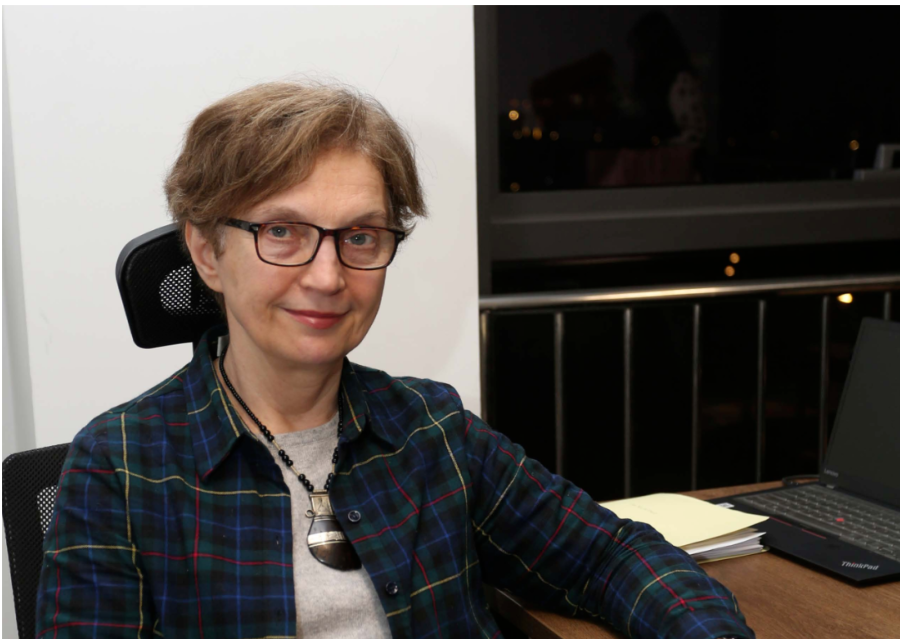Growing up in her hometown of Skopje in Macedonia, Professor Maria Todorovska experienced a devastating earthquake in 1963. Despite the devastation and destruction caused by the earthquake, the traumatizing event also sparked her interest in earthquake science and fueled her motivation to pursue research in this unique field.

Today, the enthusiastic scientist is a full-time professor of Civil Engineering at Tianjin University (TJU), having taken up the post since 2017, and is also the founder of TJU's Strong Motion Observation and Simulation Laboratory.
"Tianjin is [now] my home," she told Science and Technology Daily in a recent interview.
Todorovska said she found it is easy and interesting to study maths and physics, and realized that she wanted to contribute to her hometown's resilience against seismic events.
Focusing her research on earthquake engineering, combining her expertise in physics and mathematics, her profound understanding of these disciplines has enabled her to tackle complex problems in her chosen field.
Embracing opportunities
Todorovska's connection with China began with a mix of curiosity and fascination. Many years ago, she met a visiting professor from TJU who was at the University of Southern California in the U.S. Recognizing the potential for collaboration, she embarked on a remote working relationship with the Chinese professor and his students. As time passed, the professor extended an invitation for Todorovska to visit TJU—an opportunity she eagerly embraced.
During her visit, Todorovska realized the immense potential for collaboration and research opportunities at TJU. What motivates her to work in TJU are the research funding secured, and the chance to develop her laboratory and seismic observation site from the ground up. The research funds provided a solid foundation for her ambitious plans, enabling her to tackle pressing seismic challenges and further her scientific pursuits. Moreover, the prospect of working with Chinese researchers and students was a significant draw. "The conducive research environment in China enables scientists to thrive and make significant contributions to their respective fields," she said.
A sense of achievement
When Todorovska joined TJU, she brought with her a wealth of knowledge and a passion for strong motion seismology. She established the Strong Motion Observation and Simulation Laboratory, leveraging resources from various funders to acquire sensors for building installations and workstations for motion simulation. Todorovska spared no effort to transform the laboratory into a well-developed and highly regarded facility with a group of diligent people. "I gained a sense of achievement after our hard work," she said.
Her laboratory focuses on the observation and simulation of strong ground motions, playing a vital role in advancing structural health monitoring and soil-structure interaction research. One of the key projects undertaken by her laboratory is a full-scale seismic observation site in the Tongde Plaza Yue Center, an instrumented skyscraper located in Kunming city, Yunnan province. This initiative provides a unique opportunity to develop new approaches for soil-structure interaction and structural health monitoring studies.
Empowering public safety
According to Todorovska, scientific knowledge empowers the public to have safer living conditions in earthquake-prone regions. In earthquake-prone areas, disseminating information to the public is crucial for reducing injuries and loss of life during seismic events. Educating residents on proper building practices and practical safety measures can also enhance the population's awareness.
Through science outreach initiatives, individuals can learn how to construct earthquake-resistant houses and protect themselves during tremors, minimizing the impact of disasters.
Fostering friendships
Todorovska believes that, "Science serves as a unifying force, fostering friendships between nations." She actively invites experts from different countries to collaborate with her research team to promote cross-cultural collaborations. Through exchange programs, lectures and virtual platforms like Zoom, Todorovska facilitates knowledge sharing and cultivates scientific friendships beyond geographical boundaries. This approach not only enriches the research conducted at TJU, but also strengthens global scientific networks.
Looking ahead, Todorovska plans to continue her research for the next three years, nurturing the talents of her students and advancing the field of earthquake engineering. She also acknowledges the value of inspiring children to become future scientists, assuring them that with determination, they can make significant contributions to society.
图文来源:天津大学
